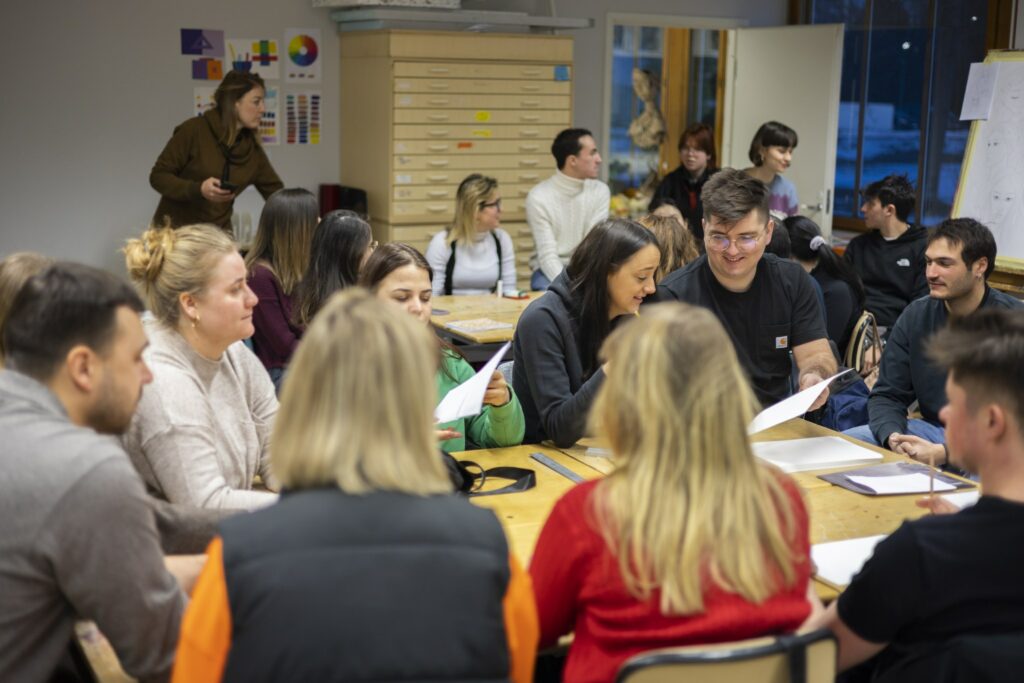Upper secondary level
Upper secondary level
Entrepreneurship education at upper secondary level
At the upper secondary level, entrepreneurship education is linked to both vocational education and training and general upper secondary education. The aim is to strengthen students’ entrepreneurial skills and encourage entrepreneurial attitudes and activities. These objectives are achieved by providing students with learning experiences that encourage initiative, entrepreneurial activities, co-operationnd responsibility. Entrepreneurship education at the upper secondary level emphasises diverse methods and co-operation with the working life.
Find out more about the common objectives and recommendations of the North Ostrobothnia model of entrepreneurship education here.
Development objectives
Various development objectives have been set for the upper secondary level, which are:

- Incorporating entrepreneurship and working life themes into different subjects and modules.
- Developing the institution’s partnerships with working life in a targeted way and making use of co-operation in a variety of ways as part of teaching.
- Recognising the work already done in entrepreneurship education and strengthening the entrepreneurship education skills of teaching staff through further training and networking.
- Collaboration around entrepreneurship education themes across different education levels and development of pathways towards higher education.
- Exploiting entrepreneurship education themes as part of international co-operation through projects and day-to-day activities.
- Providing all students with the opportunity to choose entrepreneurship studies, and supporting students in building work life contacts during their studies.
- Incorporating entrepreneurship education theme days (e.g. Entrepreneurs’ Day, International Entrepreneurship Week, International Finance Week) into the annual calendar of educational institutions.
- Building an entrepreneurial culture throughout the organisation.
Competency targets
The regional competence objectives for the upper secondary level are a collection of the entrepreneurship education objectives mentioned in the curriculum and the qualification requirements. The objectives are intended to help teaching staff identify the work they already do in entrepreneurship education. The objectives are reached through the study path and are linked to the different study units, qualification units and transversal competences.
- Student has a positive attitude towards entrepreneurial activity and recognises entrepreneurship as an opportunity for their career path.
- Student identifies business opportunities and can solve customer problems in a responsible, innovative and sustainable way in co-operation with their network.
- Student understands the aspects of entrepreneurship and business planning.
- Student identifies and develops their own competences and strengths, taking into account the changing demands of working life while strengthening their competence identity.
- Student learns to tolerate uncertainty and identify risks in their entrepreneurial activities.
- Student is able to function in different team and teamwork situations in accordance with their role and the culture of their community.
- Student understands the impact of their actions and lifestyle on the ecological, economic, social and cultural environment and acts accordingly.
- Student has a positive attitude towards sustainability and the future and will strive to act accordingly.
- Student has the courage to experiment and use digital environments and tools appropriately.
- Student understands the potential of digitalisation in their own activities, studies and working life.
- Student has a positive attitude towards multiculturalism and internationalism, recognises the opportunities of global working life and entrepreneurship and has the courage to present their competences in international interactions.










